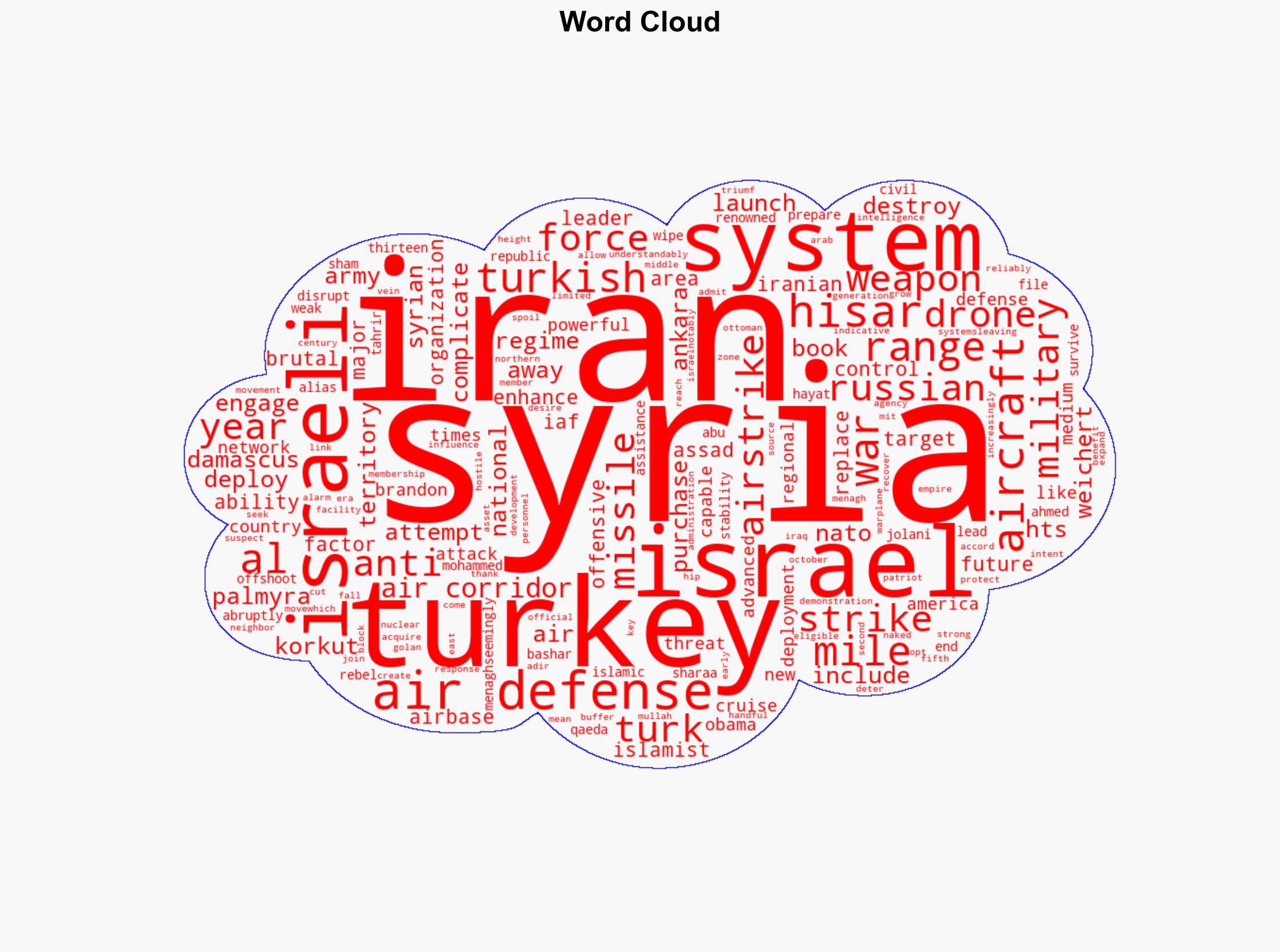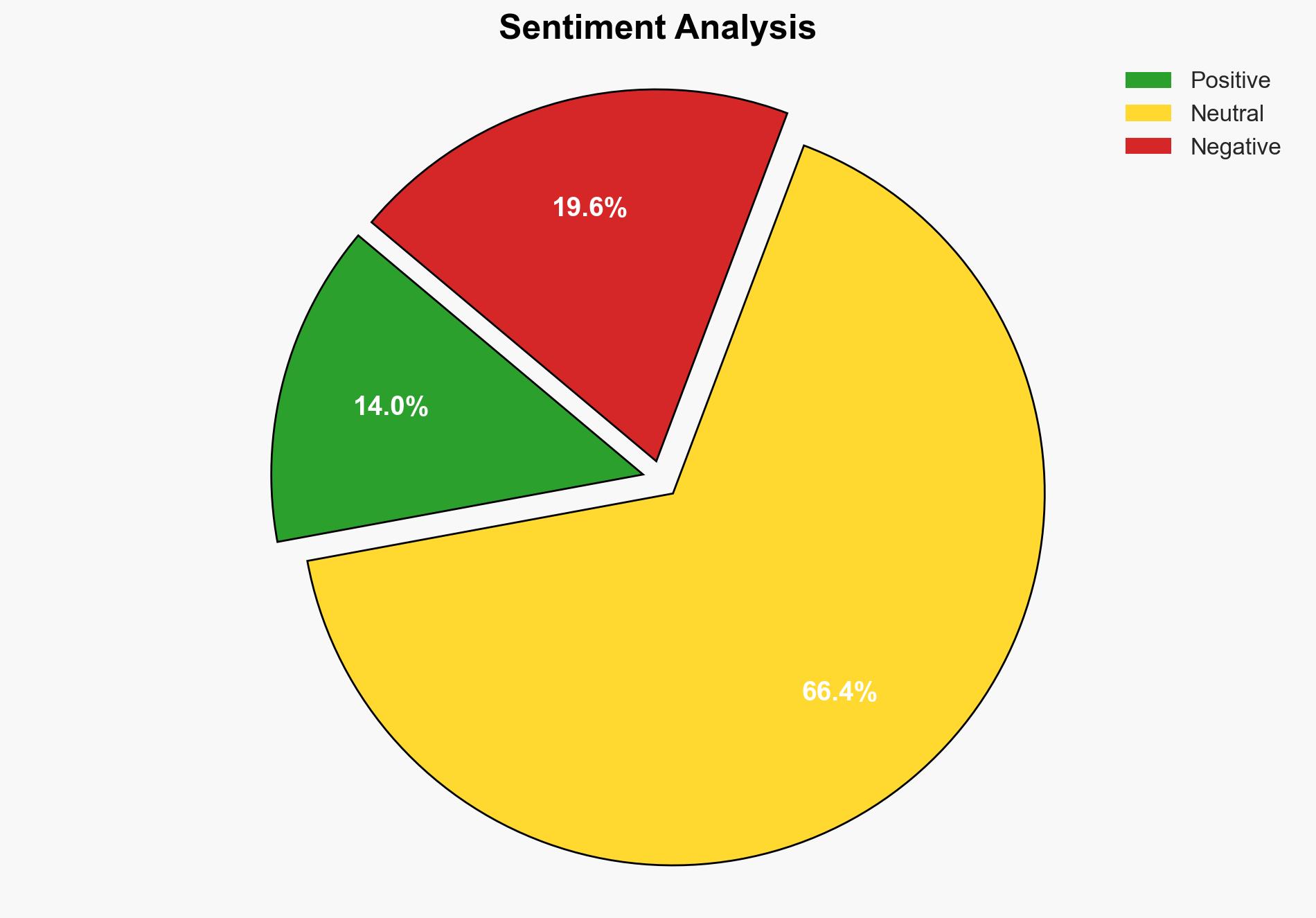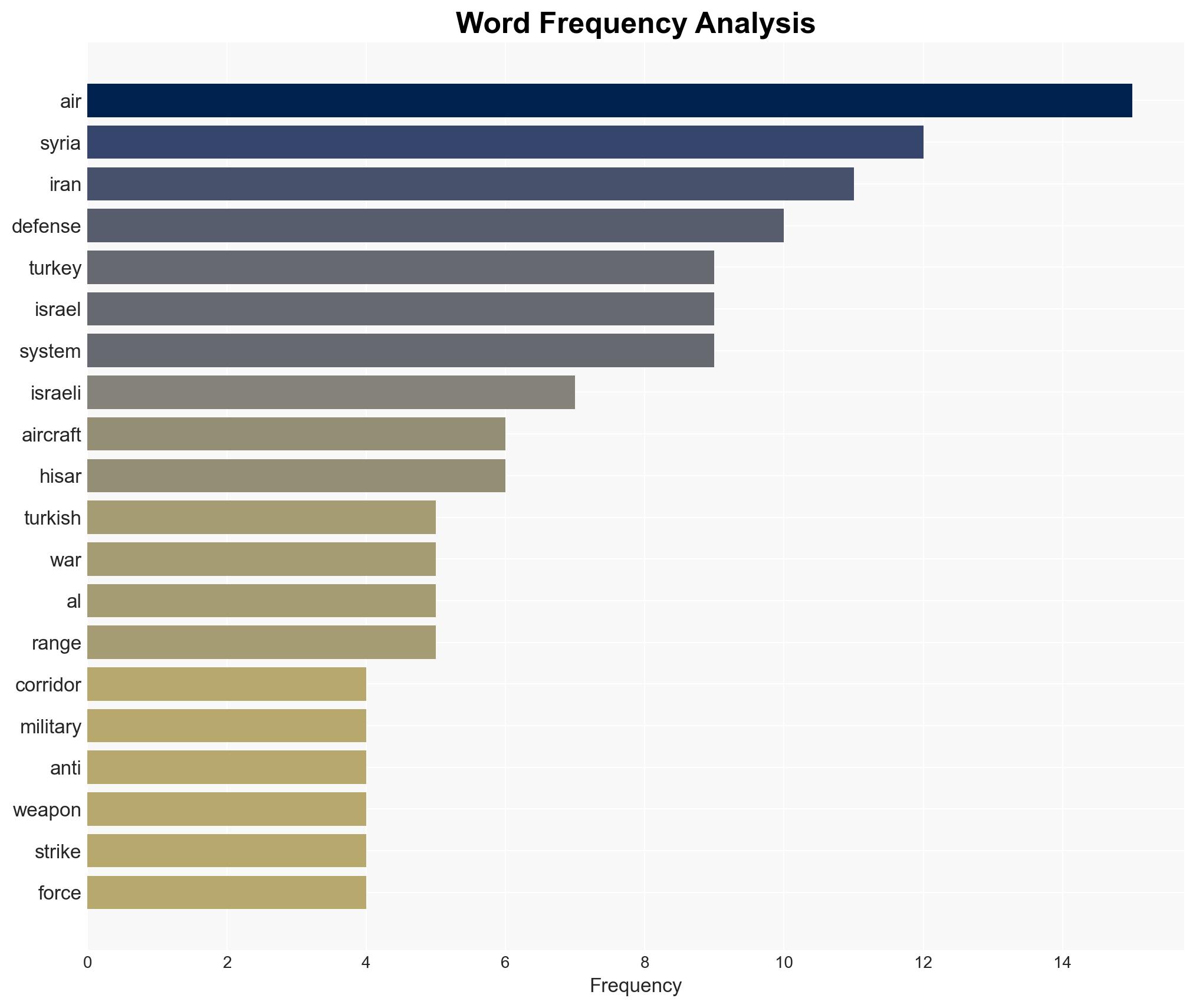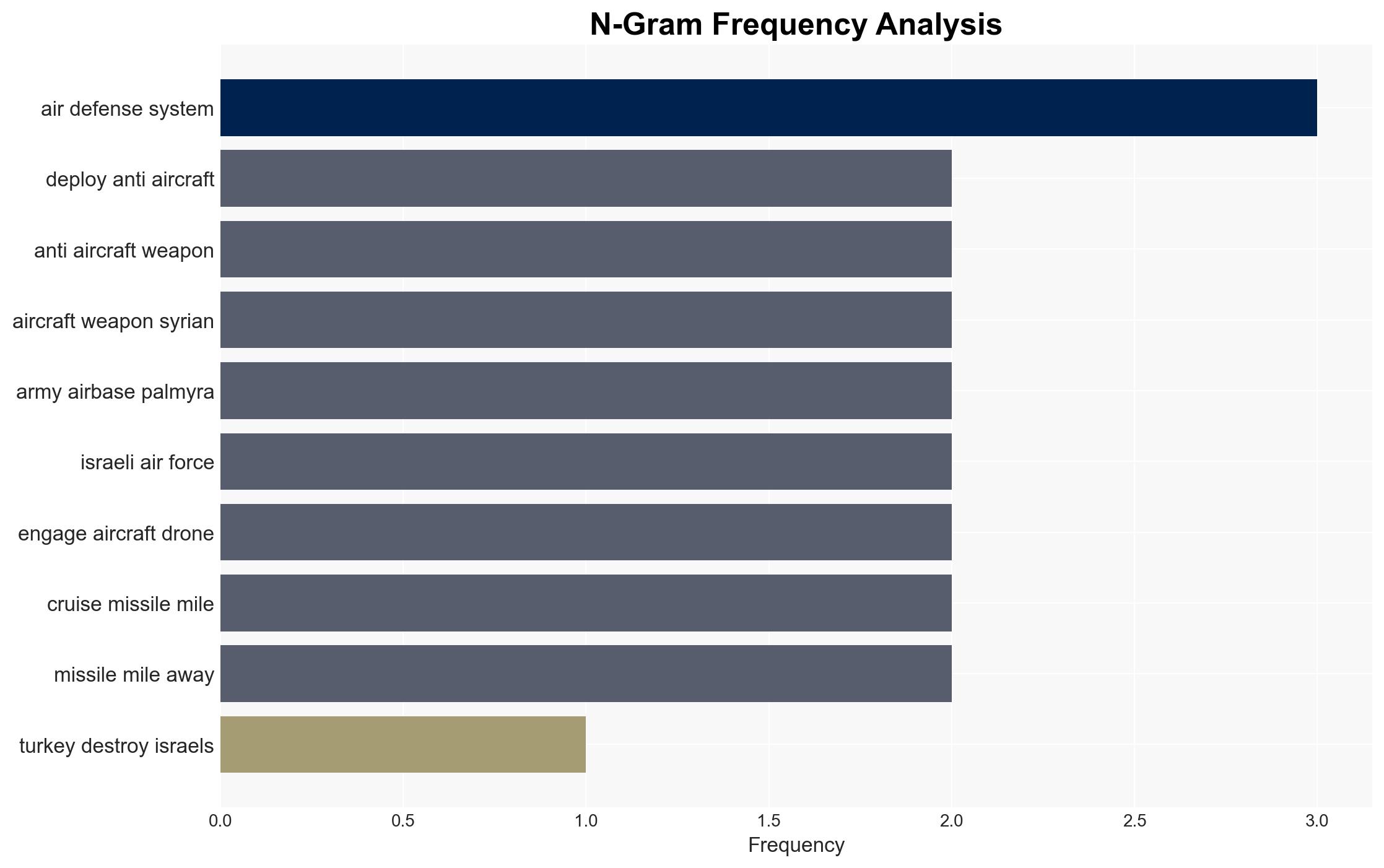How Turkey Could Destroy Israels Air Corridor Over Syria – The National Interest
Published on: 2025-04-04
Intelligence Report: How Turkey Could Destroy Israel’s Air Corridor Over Syria – The National Interest
1. BLUF (Bottom Line Up Front)
Turkey’s deployment of advanced anti-aircraft systems in Syria poses a significant threat to Israel’s strategic air corridor used for operations against Iran. This development complicates Israel’s military strategy and could destabilize regional security dynamics. Immediate diplomatic and military strategies are recommended to mitigate the risks posed by Turkey’s actions.
2. Detailed Analysis
The following structured analytic techniques have been applied for this analysis:
General Analysis
Turkey has strategically deployed anti-aircraft weapons at key Syrian airbases, including Palmyra and Menagh, to disrupt Israeli air operations targeting Iran. This move is part of a broader Turkish strategy to expand its influence in the Middle East, reminiscent of its historical Ottoman Empire reach. The deployment of systems such as the Triumf, Hisar, and Korkut enhances Turkey’s air defense capabilities, potentially neutralizing Israeli airstrikes.
The fall of the Assad regime and the rise of the Hayat Tahrir al-Sham group, supported by Turkey, further complicates the geopolitical landscape. Israel’s creation of a buffer zone and control over strategic Syrian territories are direct responses to these developments.
3. Implications and Strategic Risks
The deployment of Turkish anti-aircraft systems in Syria presents several strategic risks:
- National Security: Israel’s ability to conduct airstrikes against Iranian targets is severely compromised, affecting its national defense strategy.
- Regional Stability: Turkey’s actions could lead to increased tensions between NATO allies and destabilize the already fragile Middle Eastern geopolitical environment.
- Economic Interests: Prolonged instability may disrupt regional trade routes and energy supplies, impacting global markets.
4. Recommendations and Outlook
Recommendations:
- Engage in diplomatic negotiations with Turkey to de-escalate tensions and seek a resolution that respects both nations’ security concerns.
- Enhance Israel’s air defense capabilities and explore alternative routes for air operations to maintain strategic flexibility.
- Strengthen alliances with regional partners to counterbalance Turkey’s influence and ensure stability in the region.
Outlook:
Best-case scenario: Diplomatic efforts lead to a de-escalation of tensions, and a mutually beneficial agreement is reached between Turkey and Israel.
Worst-case scenario: Continued military escalation results in direct conflict, further destabilizing the region and drawing in additional international actors.
Most likely scenario: Ongoing tensions with sporadic military engagements, requiring continuous monitoring and adaptive strategies by Israel and its allies.
5. Key Individuals and Entities
The report mentions significant individuals and organizations, including:
- Ahmed al Sharaa (alias Abu Mohammed al Jolani)
- Hayat Tahrir al-Sham
- Turkish MIT Intelligence Agency





